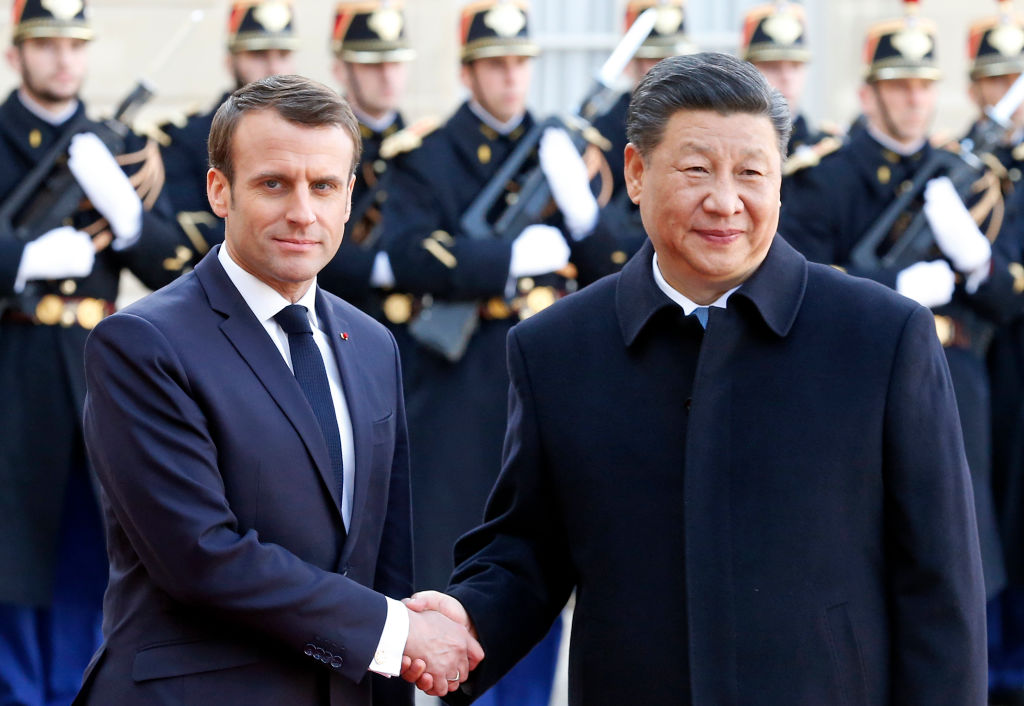Last week, US Secretary of State Antony Blinken travelled to Beijing to meet senior Chinese government representatives. His reception was somewhat frosty, as officials told him that the United States must choose between a policy of “confrontation or cooperation” with the Chinese. Beijing’s diplomatic well is now pretty dry, and its representatives are signalling clearly that the Americans need to make a decision on their Chinese strategy.
When Blinken met with Xi Jinping, the message was reinforced in as clear terms as possible. “China is pleased to see a confident, open, prosperous United States,” Xi said. “We hope that the US side can also view China’s development in a positive and proactive light.” He then went on to warn Blinken against engaging in what he called “vicious competition” with Beijing.
It is not only Chinese officials who are tiring of Washington’s ill-defined stance towards its fellow power. Earlier this month a Donald Trump megadonor, hedge fund titan John Paulson, warned against trying to economically decouple from China. Paulson, who is tipped to be a potential nominee for a Trump administration Treasury secretary, strongly pushed back on the Biden administration’s stance. “We don’t want to decouple from China,” he told the Financial Times, “We need to have a good economic and political relationship with them.”
In Europe, however, chaos continues to reign on the China question. While European leaders signal that they do not wish to sour trade relationships with China, actions are starting to speak louder than words. Last week Germany arrested Chinese nationals on charges of espionage. Meanwhile, the European Commission opened an investigation against Chinese social media platform TikTok. This was strange timing, given that the United States House of Representatives recently passed a similar bill, raising questions about the independence of the Commission on diplomatic and economic policy.
Yet if Europe did push the Chinese out of the continent, its economy would collapse. Europe — including the United Kingdom — is the region most reliant on external trade in the world. In 2022, imports made up less than 10% of GDP in North America. In Europe, however, imports made up nearly 47% of GDP. The old continent is almost five times more dependent on imports than North America.

Many in America do not want to see the country decouple from trade with China, seeing such a move as deleterious for the economy. It would result in even more inflation and a serious deterioration in American living standards as cheap Chinese imports dried up. But, provided that the US could weather the social unrest sparked by crashing living standards, the country could at least theoretically adjust.
This is not the case for Europe, whose economy is the most open in the world. It prides itself on trading with anyone and everyone, and its products reflect this in terms of their quality and competitiveness. European manufacturing has already taken a hit from the high energy prices caused by the sanctions and counter-sanctions associated with the war in Ukraine. Cutting off access to Chinese products — both consumer products and inputs for European industry — would irreversibly damage the continent.
There is little appetite in Europe to economically decouple from China. But passions are running high in the wake of the Ukraine war — which is not going in Europe’s favour — and so there is a tendency to sign up to whatever is the most belligerent and “tough” policy being circulated. This attitude is unlikely to last.
As the hysteria dies down, the adults in the room will reassert themselves and remind us that our living standards rely on the complex interconnectedness of the global economic system. For now, at least, there is no alternative. And those who want an alternative need to work towards building it, rather than simply trying to destroy the current system.











Join the discussion
Join like minded readers that support our journalism by becoming a paid subscriber
To join the discussion in the comments, become a paid subscriber.
Join like minded readers that support our journalism, read unlimited articles and enjoy other subscriber-only benefits.
Subscribe